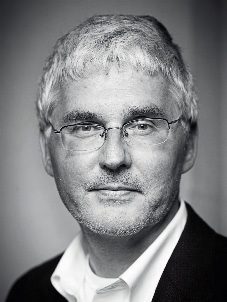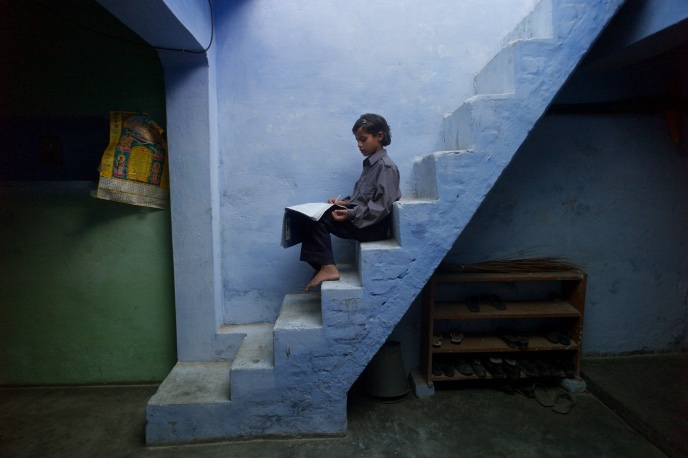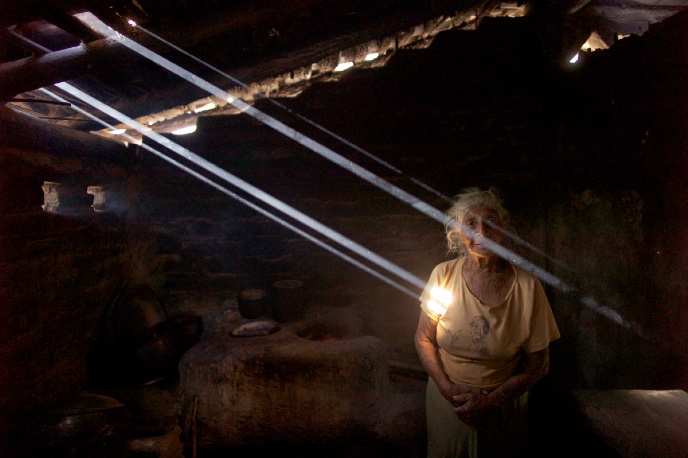Unnecessary burden of war

Governments could help millions of people and save a lot of money with targeted energy subsidies. Different kinds of households around the world suffer in various ways from the exorbitant energy prices and need different kinds of support, says Klaus Hubacek from the University of Groningen in a new study that was published today in Nature Energy.
FSE Science Newsroom | Leoni von Ristok
All around the world, households are affected by soaring energy prices due to the war in Ukraine. But these households are affected in different ways: ‘This depends on their income level, how they spend their money, and how and where the products that they are using are being produced,’ explains Hubacek, Professor of Science, Technology, and Society.
Poverty
‘Our study is one of the very first that quantifies—at an unprecedented level of detail—the impacts of the energy crisis, including its impact on households, within many countries and with a global reach,’ says Hubacek. ‘Without such detailed knowledge, it is impossible to know who to help and how. If the governments were to use this as a guide, they could save a lot of money.’

The increased fossil fuel prices potentially push millions of people into poverty, or even extreme poverty. Government measures to subsidize towering energy bills for households are inefficient because they do not take enough details into account. ‘If you look at the responses of governments, for example in Germany, the UK, the US, or the Netherlands, they have been using policies that do not sufficiently help those who need it most,’ states Hubacek. ‘Meanwhile they spend lots of money on people who don’t need it. That really frustrates me.’
Food
Energy prices affect households in two ways. Directly, through high energy bills, and indirectly, through the goods and services that became more expensive due to fossil fuel use in their supply chains. ‘So, for example, if you use a cell phone in the Netherlands you need direct energy, which is not a lot,’ explains Hubacek. ‘But a cell phone is made of many different components that come from Japan, China, Austria, the US, and so on.’ Therefore higher energy prices effect the price of a new smart phone indirectly.
The same is true for food: energy prices push up costs for fertilizer, transport, etcetera. Energy inputs are required in production and transportation all the way to the final product. The rising costs of energy are passed on to the consumer through the price of the product, thus indirectly increasing the burden on households.

Straw
Because different households spend their money on different things, the kind of burden that the energy price shock imposes varies as well. ‘We show this in detail in our paper,’ says Hubacek. ‘For example, in some countries it's the increase in food prices that affects households most, in other cases it's mobility, and so on. Knowing what causes the increased costs exactly allows you to really subsidize the products and services that put the highest pressure on households.'
For both high- and low-income countries, the indirect energy costs impose the biggest burden, whereas for middle-income countries, direct energy costs have the biggest impact. A possible explanation is that in high- and low-income countries, households’ direct energy availability is uniform, according to Yuru Guan, one of Hubacek’s PhD students and first author of the paper. Therefore, they are affected more by consumption patterns of other goods. ‘For example, Dutch people basically use natural gas for heating, so when energy prices increase, everyone suffers from the same rate of increase in direct energy costs,’ explains Guan.
In middle-income countries, households show larger disparities when it comes to the availability of energy. ‘In China, the rich have access to natural gas for heating, while the poorest burn coal or even straw,’ continues Guan. Therefore, the total burden on household expenditure is dominated by direct energy costs.

Windfall tax
Hubacek makes another point. He suspects that the increase of energy prices due to the Russian invasion in Ukraine wouldn't have been as extreme if better policies had been made before. 'Governments could have saved money by helping people with lower incomes to insulate their houses instead of digging for coal and investing in LNG terminals that are hugely inefficient,' says Hubacek. 'Now they invest in a very expensive infrastructure that we shouldn't have in the first place if we take climate change seriously.'

Governments could moreover increase their income relatively easy. ‘Energy companies’ profits have increased considerably since the onset of the war,' according to Hubacek. 'And many other sectors benefited as well. They increase their prices more than required to cover the extra energy costs, thus increasing their profits.' Special windfall and carbon taxes could help enormously in the fight against poverty. ‘It's all linked,’ says Hubacek. ‘Polluting sectors could be taxed and the money could be used to help poor households. It's simple. It's just politically difficult.’

It is up to policy makers to make decisions that take the bigger picture into account, and not to just stick plasters. ‘However, there is no free lunch,’ as Hubacek puts it. ‘Renewable energy contributes to climate change as well. So the focus should be on policies that fight poverty and energy use in the long term.
Reference: Yuru Guan, Jin Yan, Yuli Shan, Yannan Zhou, Ye Hang, Ruoqi Li, Yu Liu, Binyuan Liu, Qingyun Nie, Benedikt Bruckner, Kuishuang Feng and Klaus Hubacek. Burden of the global energy price crisis on households , Nature Energy, 16 February 2023
Thanks to Lynn Johnson for kind permission to use her images for this publication.
| Last modified: | 20 September 2023 5.43 p.m. |
More news
-
13 May 2024
Trapping molecules
In his laboratory, physicist Steven Hoekstra is building an experimental set-up made of two parts: one that produces barium fluoride molecules, and a second part that traps the molecules and brings them to an almost complete standstill so they can...
-
29 April 2024
Tactile sensors
Every two weeks, UG Makers puts the spotlight on a researcher who has created something tangible, ranging from homemade measuring equipment for academic research to small or larger products that can change our daily lives. That is how UG...
-
16 April 2024
UG signs Barcelona Declaration on Open Research Information
In a significant stride toward advancing responsible research assessment and open science, the University of Groningen has officially signed the Barcelona Declaration on Open Research Information.

